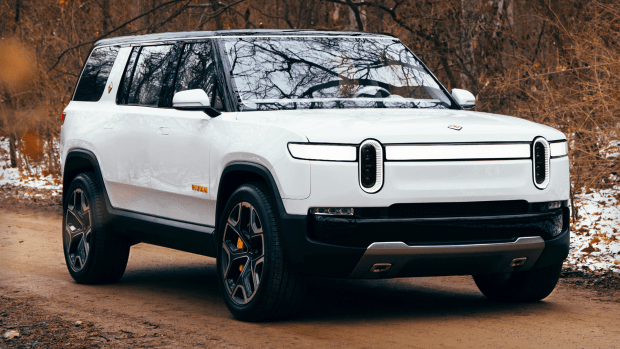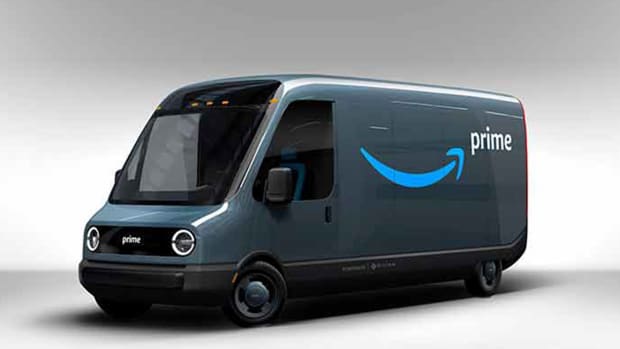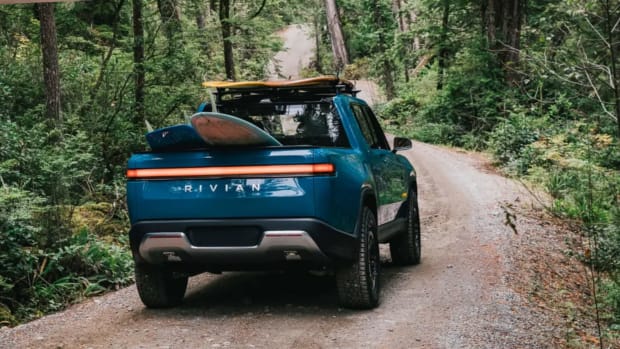Things aren't working out so well for Rivian (RIVN) these days.
The young manufacturer of electric vehicles seems to be experiencing a series of slips that never ends. It is enough to make you wonder if it will stop anytime soon as the environment seems to darken for the automotive industry as a whole.
Supply chains that were already disrupted by the pandemic are further disrupted with the Russian invasion of Ukraine. Added to this is the recent surge in commodity prices in line with the rise in crude oil prices.
The price of nickel, a key element in the manufacture of batteries, has broken records in recent days.
Rivian doesn't seem to know how to navigate this cloud of bad news.
The company, presented as one of the great rivals of Tesla (TSLA), GM (GM) and Ford (F), announced again bad news during the publication of the fourth quarter earnings on Thursday.

Rivian
Supply Chain Is a Big Headache
The firm only plans to produce 25,000 vehicles in 2022, while its order book shows 83,000 units. This ultra-cautious forecast, Rivian argued, is due to its ongoing problems with the supply chain.
Rivian seems to be having a hard time managing the planned cadence increases. Rivian produces three models: the R1T pickup, the R1S SUV and the RCV electric van, of which Amazon, one of its shareholders, is a key customer. The automaker currently has a plant in Normal, Illinois, and will soon begin construction of a second production site in Georgia.
"Over the course of fiscal year 2022, we plan to remain focused on ramping up production of both the R1 and RCV lines in Normal, as well as investing in our technology and product portfolio for future growth," the company said in its fourth-quarter letter to shareholders.
But there's a big problem, the same one that's been holding Rivian back since producing its first vehicle last year.
"We believe that throughout 2022, the supply chain will be a fundamental limiting factor in our total output for the Normal factory and that our manufacturing equipment and processes would have the ability to produce enough vehicles to deliver over 50,000 vehicles across our R1 and RCV platforms in 2022 if we were not constrained by our supply chain," Rivian argued.
But "due to the supply chain constraints currently visible to us, we believe we will have sufficient parts and materials to produce 25,000 vehicles across our R1 and RCV platforms in 2022."
"We continue to work with suppliers and look for engineered solutions to help us combat any anticipated supply chain issues."
Basically, it is possible to produce 50,000 cars in 2022 but due to difficulties like bottlenecks Rivian will not achieve it.

Amazon
Rising Costs
"Our path to EV leadership won’t be easy," admitted the company. "In the immediate term, we are not immune to the supply chain issues that have challenged the entire industry. Those issues, which we believe will continue through at least 2022, have added a layer of complexity to our production ramp-up."
After what looks like an admission of weakness, Rivian says it is doing everything to find a solution as soon as possible.
"We are working diligently and collaboratively with suppliers to identify and head off problems or constraints as quickly as possible," the company said. "During the next 12 months, we will remain focused on ramping up production at our plant in Normal, Illinois, as well as initiating work on our second domestic manufacturing facility in Georgia."
It's unclear whether investors will remain patient as production costs continue to rise as well as losses.

Rivian
Rivian announced a net loss of $2.46 billion in 2021, while its costs increased to $3.75 billion from $1.02 billion in 2020. Negative gross profit was $465 million of which $383 million in the fourth quarter.
It's hard to see a point of hope in the short term. Rivian produced only 1,015 vehicles in 2021 while the automotive group had planned to manufacture 1,200. In 2022, it has produced 1,410 vehicles as of March 8.
Rivian delivered 929 vehicles in 2021
"As we continue to ramp-up our manufacturing facility, manage supply chain challenges, face continued inflationary pressures, and minimize price increases to customers in the near term, we expect to recognize negative gross margins throughout 2022." the company warned.
Capital expenditures are expected to rise at $2.6 billion, up 45% compared to 2021, "driven by additional investment in our Normal factory to expand the total capacity to 200,000 units annually," the company said.
In addition, "we expect to realize increased capital spend associated with tooling for current vehicle platforms, future vehicle manufacturing lines, battery technology and supply, our service network, digital offering, and general technology."
The only good news for investors is that Rivian has just raised the prices of its vehicles, which could stem the financial bleeding. But even that didn't go smoothly, as the company had to take back the increase for those customers already on its waiting list.







